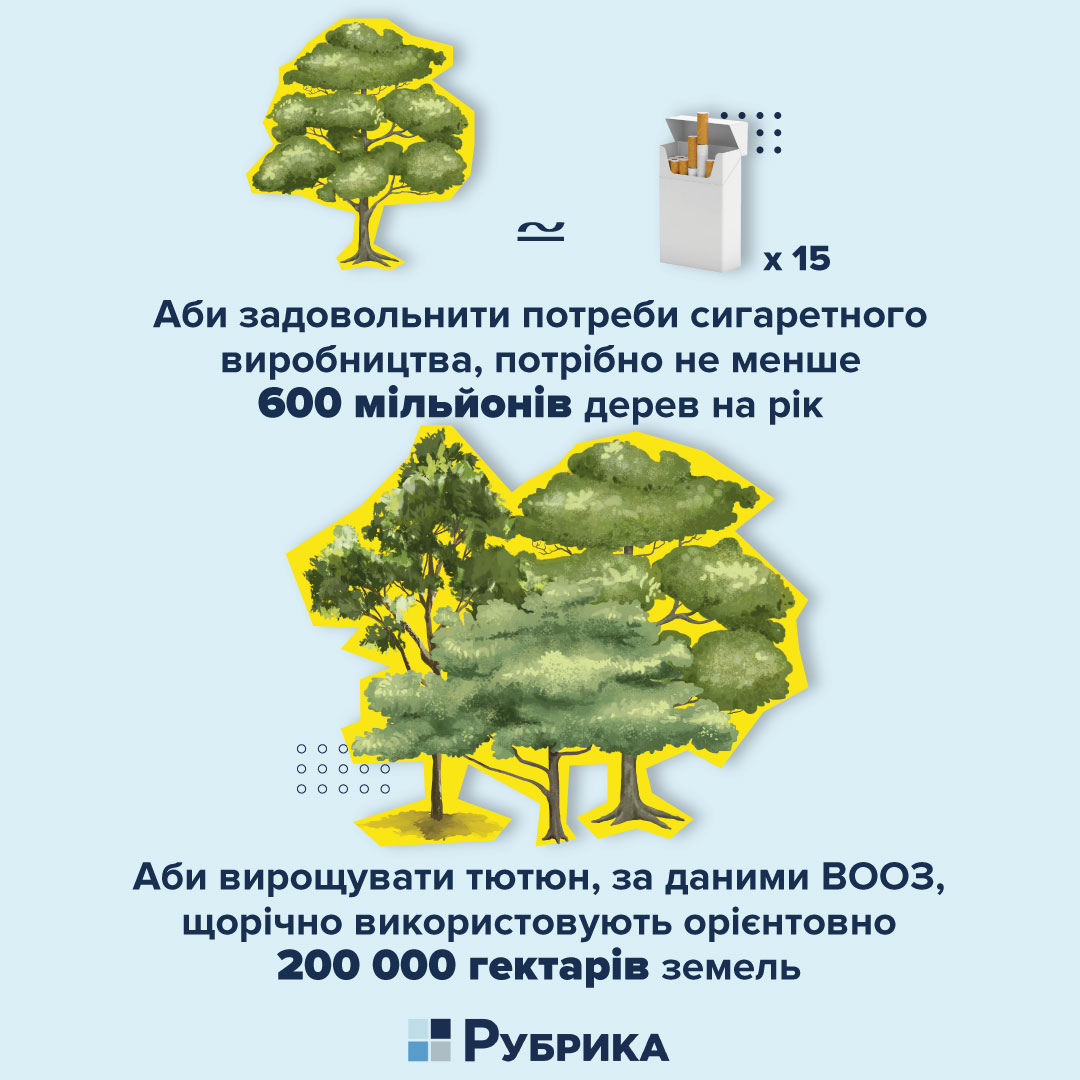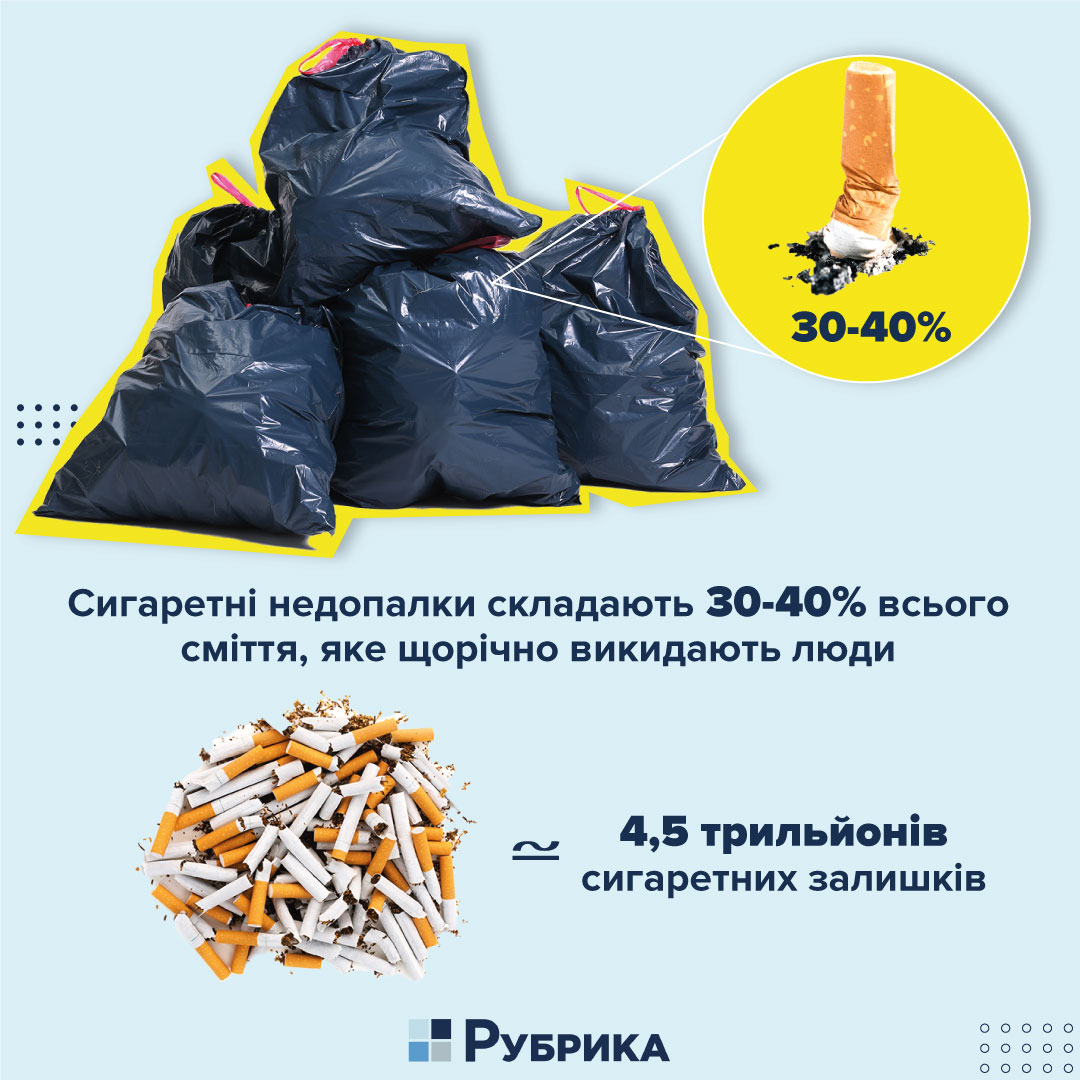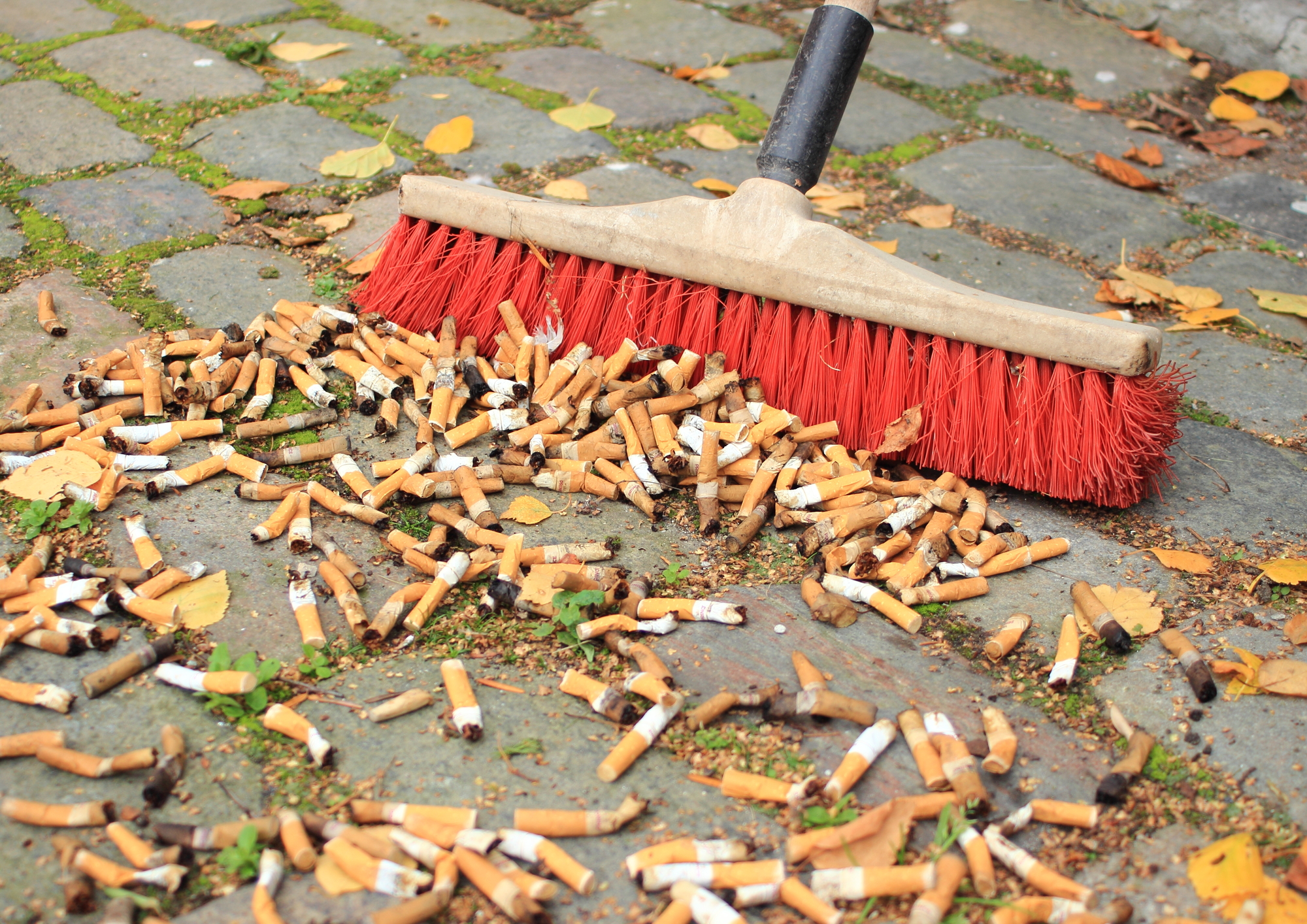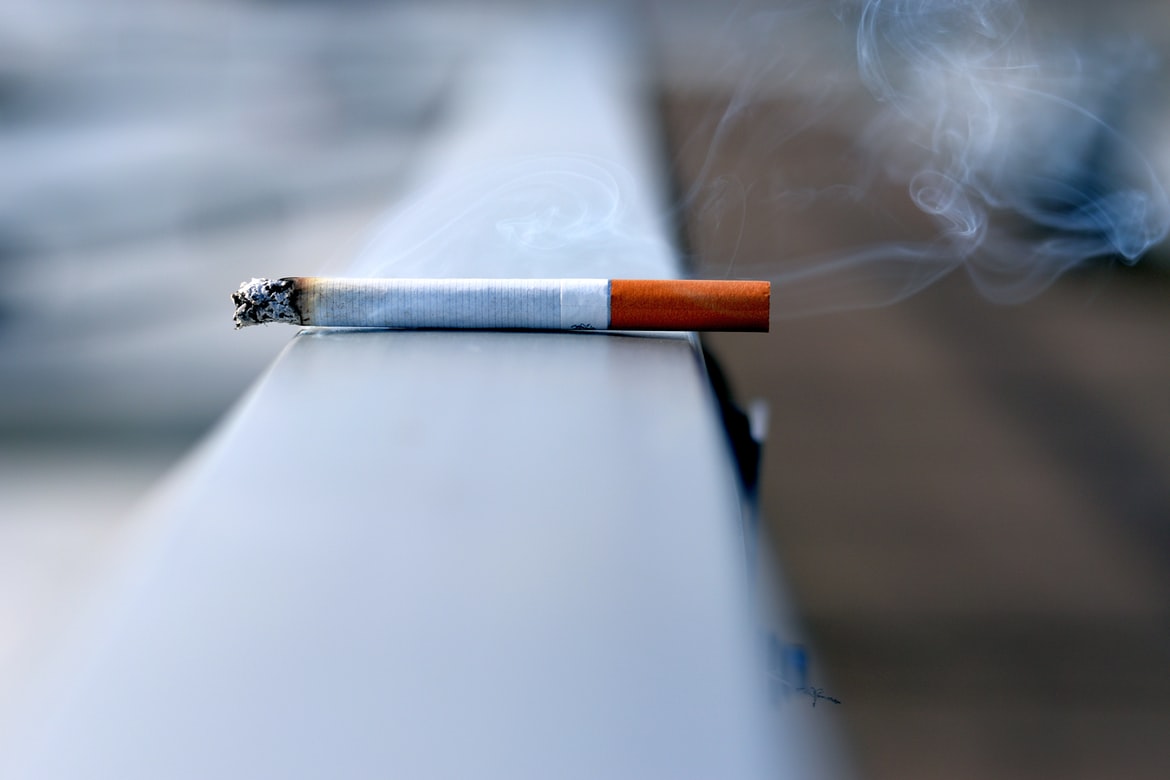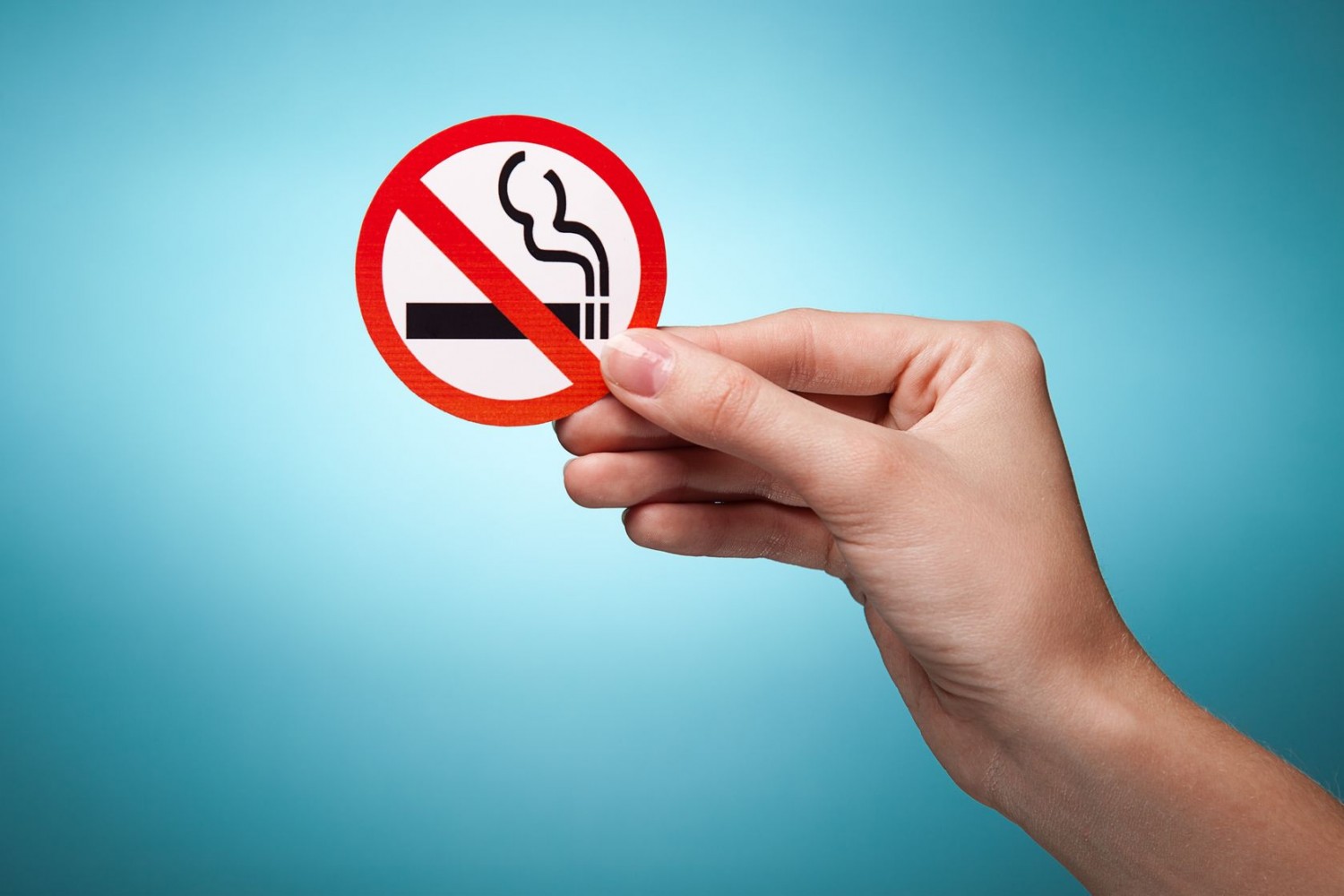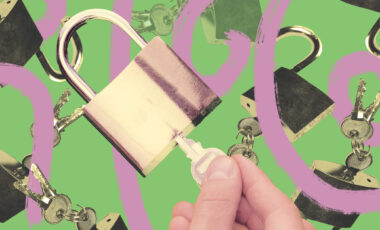Court, trees and toxic plastic: why smoking is not eco and what to do
The tobacco industry is a lucrative, popular and harmful thing. Smoking is addictive and leads to several serious diseases, as well as many complications. Persuading smokers to give up harmful addictions is usually thankless. However, it's worth fighting not only for the health of individuals but also for the state of the environment.
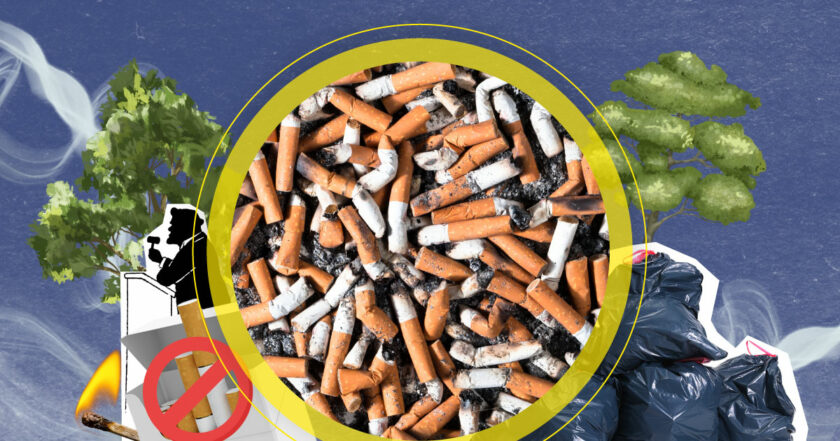
Rubryka learned how the tobacco industry in general and each smoker affect the environment and what solutions are now being found around the world to take care of nature.
What is the problem?
Farms, farmers, and afflicted forests
One tree is about 15 packs of cigarettes. At least 600 million trees a year are needed to meet the needs of cigarette production. In addition, cigarette butts thrown in the woods are often the cause of forest fires, when hundreds or thousands of other trees, plants, and animals are affected.
But not by trees alone! According to the WHO's data, approximately 200,000 hectares of land are used annually to grow tobacco. Since chemicals are often used on such farms, soils become contaminated, and chemical impurities enter ponds; the water gradually poisons flora and fauna.
The harmfulness of such impurities proves that farmers who grow tobacco on a large scale are much more likely to suffer from chronic diseases, including cancer. Tobacco dust, nicotine, and pesticides are absorbed through the skin and begin to destroy the body.
Four and a half trillion cigarette butts and air emissions
Cigarette butts make up 30 to 40% of all garbage that people throw away each year. In total, this is 4.5 trillion cigarette residues. They have many toxic substances and elements that decompose for a long time. All this gets into the soil, water, and air.
Tobacco smoke in the amount we have today also affects the purity of the air. Plus, cigarette factories cause emissions.
In recent years, there have been many proponents of e-cigarettes and vapes, which are positioned by manufacturers as gadgets that reduce the harm of smoking for both smokers and nature. However, it's not the case.
The aerosol for tobacco heating contains more than 50 carcinogenic components. And e-cigarettes contain several toxic substances: metals (chromium, nickel, lead), carbonyl (formaldehyde, acetaldehyde, acrolein, glyoxal), harmful flavors (diacetyl, cinnamaldehyde, benzaldehyde).
All this is released into the environment after the use of HTPs and their fillers. Electronic cigarettes also provide for electronic waste that cannot be disposed of in ordinary landfills due to the risk of spontaneous combustion. Disposable replaceable vape cartridges are packed in plastic blisters that cannot be recycled because of nicotine. And all this together, in the long run, can affect anyone's health, regardless of whether a person is a smoker.
Unhappiness from people and for people
A human being is a part of nature and also suffers from the effects of tobacco. The WHO reports annually on the harm of smoking to smokers and their environment and the fact that smoking leads to cancer is considered a well-known fact. There are even precedents where passive smokers have been compensated for smoke-induced illnesses.
2001. A 62-year-old woman who entered the building of a Sydney court with one of the thousands of cancer patients comes out of there, the first person whose disease was recognized as the responsibility of the tobacco industry.
Marlene Sharp worked at a local bar near Sydney for 11 years but resigned when doctors diagnosed her with laryngeal cancer. The woman filed a lawsuit against her former employer for allowing customers to smoke in a bar and thus making his subordinates passive smokers. The court found the man guilty and ordered him to pay Marlene Sharpe 466,000 Australian dollars in compensation, as laryngeal cancer is almost non-existent in cases where a person doesn't inhale tobacco smoke for a long time.
What is the solution?
Reducing the demand for cigarettes through government policy
In many countries, including ours, official government policies are trying to counter the spread of smoking. In particular, tobacco advertising is completely banned in most countries, and the ban on advertising electronic smoking devices is now being actively considered.
In the United States, you can sue the owners of restaurants or bars where you became a passive smoker since the 1990s. In Italy, there is a ban on smoking in the presence of pregnant women and children. And Iceland was the first to ban the display of cigarettes in shop windows.
In Ukraine, advertising cigarettes, their sale to minors, smoking in public places is already prohibited, and family doctors provide free consultations to those who want to get rid of addiction. Deputies are also considering the anti-tobacco draft law №4358, which provides for introducing the same rules for electronic products for smoking.
Even more useful solutions!
What to do to minimize damage to the environment
- If you're a smoker, your greatest service to the environment will be to get rid of your addiction.
- Increasing the number of bins near parks and forest areas can help reduce the number of forest fires caused by cigarette butts.
- In the Netherlands, scientists have created a robot that removes cigarette butts on beaches (but everyone still hopes that people will clean up after themselves!).
- Supporting people who want to quit smoking is also a plus for everyone. If you have such acquaintances, tell them about the resource "I Quit Smoking" or about the Rubrya special project, "Tobacco in Ukraine: who decides the fate of Ukrainians' health and the market." Our journalists gathered information about how the tobacco industry works and how addiction to smoking appears.



